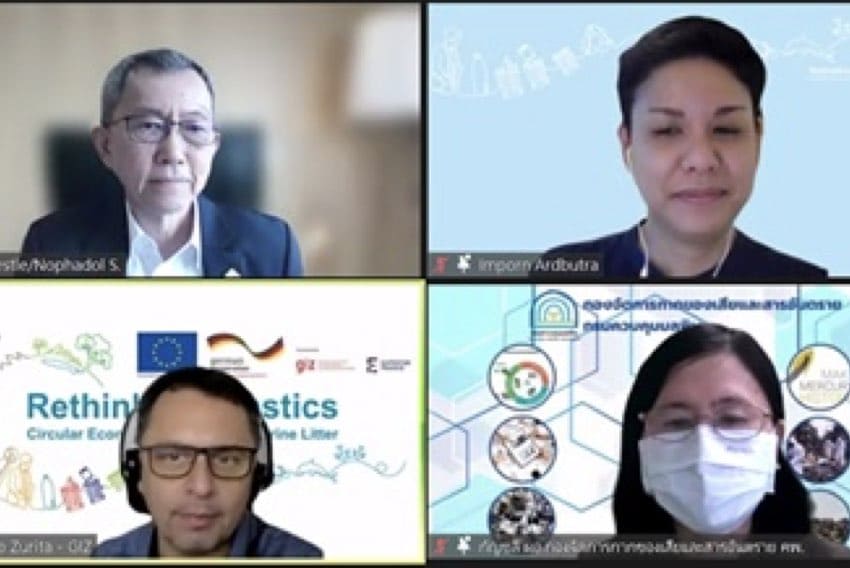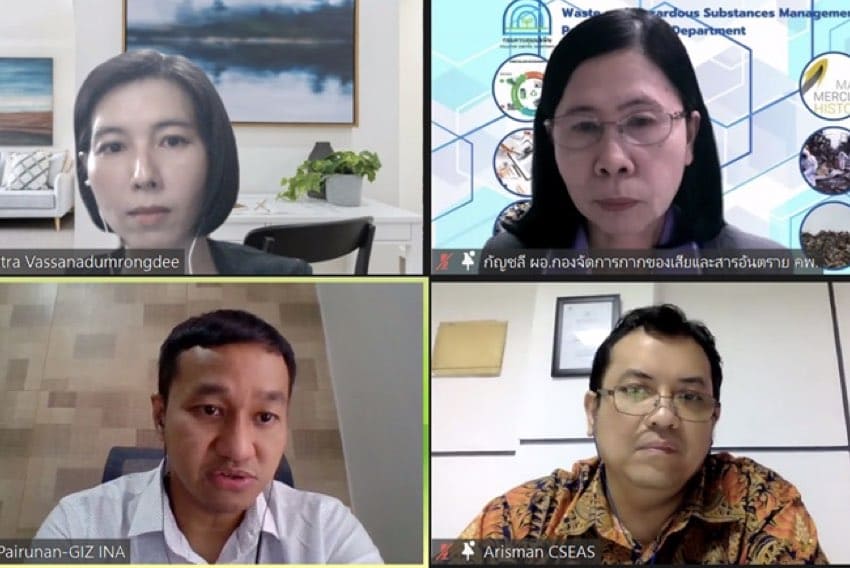Exploring Extended Producer Responsibility for packaging in Thailand
How to enhance packaging waste separation and recycling to reduce environmental pollution and greenhouse gas emissions?
The Thai Pollution Control Department (PCD) of the Ministry of Natural Resources and Environment (MONRE) and the Thailand Institute of Packaging and Recycling Management for Sustainable Environment (TIPMSE) under the Federation of Thai Industries are currently exploring options that could fit to the Thai context with the support of ‘Rethinking Plastics’.
A key concept under consideration is Extended Stakeholder Responsibility (EPR). EPR makes companies that put packaged products on the market responsible for the collection, sorting and recycling of packaging waste. Experiences from countries with such an EPR system in place show that it can generate additional financial resources, attract investments and give incentives for the design of reusable and recyclable packaging.
Being a new approach for Thailand, ‘Rethinking Plastics’, PCD and TIPMSE hosted a series of online exchange meetings together with a research team of Chulalongkorn University and Mae Fah Luang University. They served to introduce the concept of EPR, exchange knowledge and share international experiences. Between September and November 2021, a total of 230 participants from public institutions and private sector companies in Thailand attended the three events.
“We have a Roadmap on Plastic Waste Management whose first phase is currently in implementation. In 2022, we need to draft the second phase of the Roadmap. We want to build better mechanisms for environmental management. It is not solely about plastic waste – we also want to look into other types of packaging”
explained Mrs. Kanchalee Navickabhum, Director of PCD’s Waste and Hazardous Substance Management Division.
Mr. Matej Dornik from the EU Delegation to Thailand added: “EPR is one of the key policy instruments applied in the European waste management sector for different types of products such as packaging, electronics and batteries. In addition to the implementation experience already given, the EU Directive on Packaging and Packaging Waste regulates that all EU Member States need to establish EPR schemes for all packaging by 2024.”
During the sessions, representatives of the Ministries of Environment from Vietnam and Chile shared how their respective countries have been developing a legal framework on EPR in recent years. Experts from Indonesia, South Africa and Europe explained how consumer goods companies joined forces to create collective approaches, manage financial flows, establish registries, trace the collection and recycling of packaging materials and integrate informal waste pickers (“salengs”).
Mr. Nophadol Siwabutr, Chairman of TIPMSE’s working group on EPR summarised: “We aim to have everybody involved in co-designing an EPR system. Forums like this exchange series are good to learn from other experiences, adapt these experiences and learn how to avoid pitfalls. EPR in Thailand is now better understood than 10 months back.”
The exchange continues: On 14 December 2021, stakeholders will virtually gather again to discuss research findings from stakeholder interviews about potential EPR models in Thailand.



